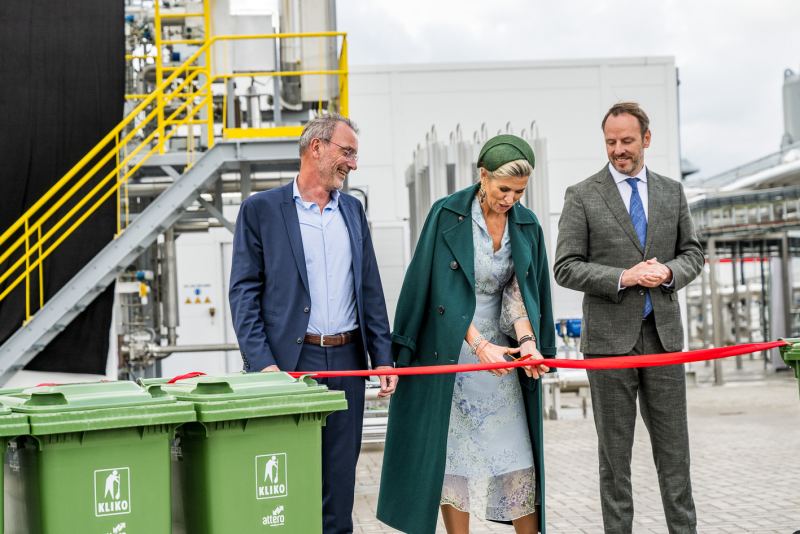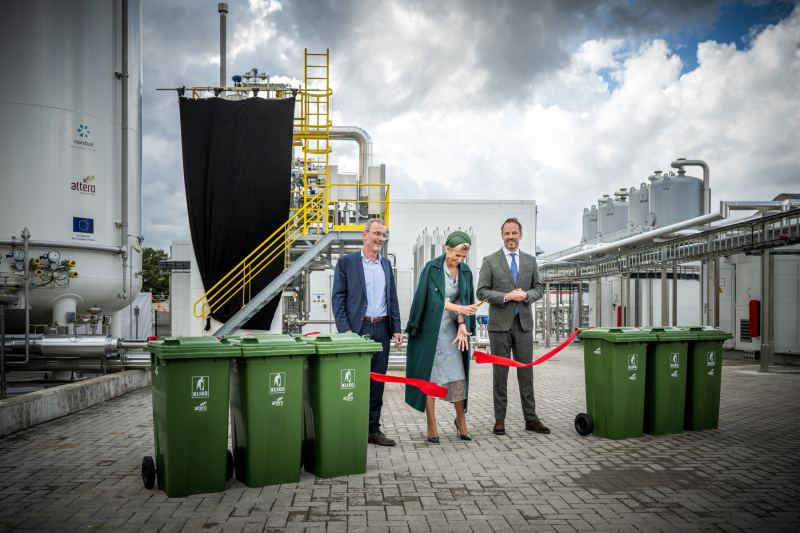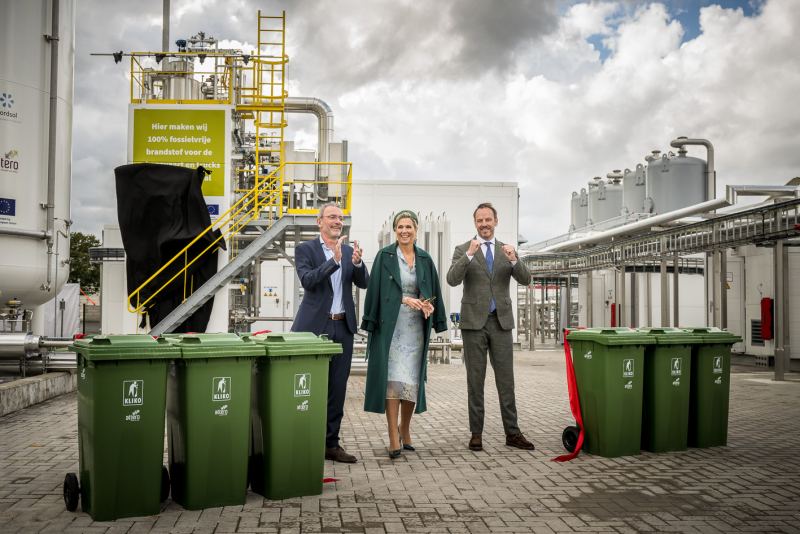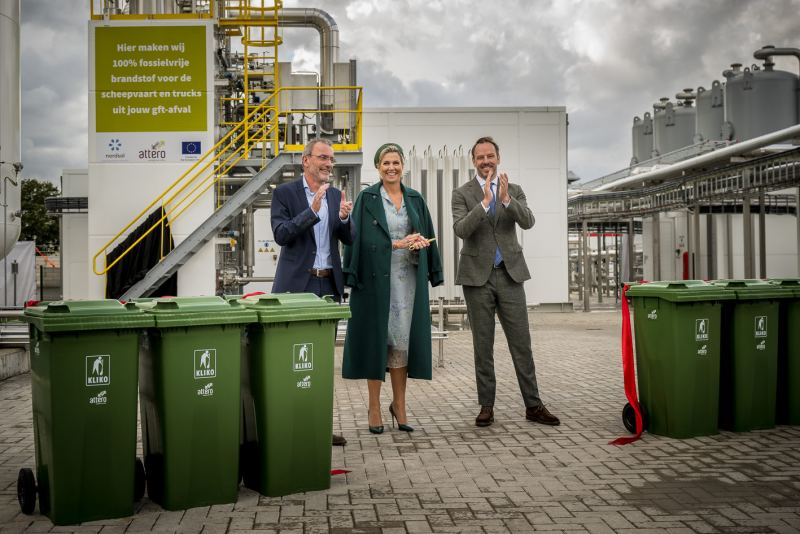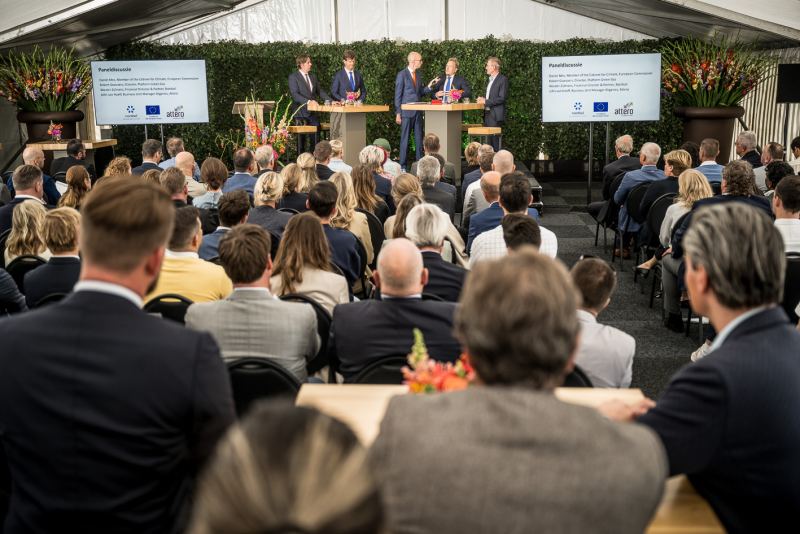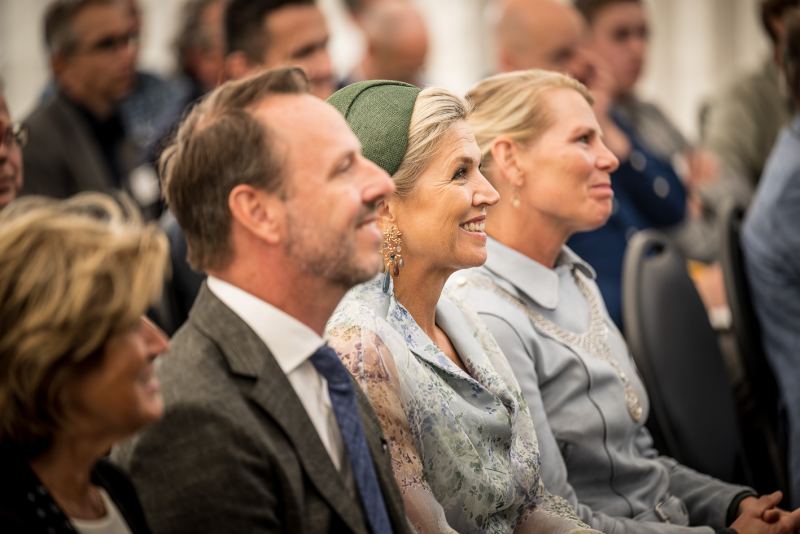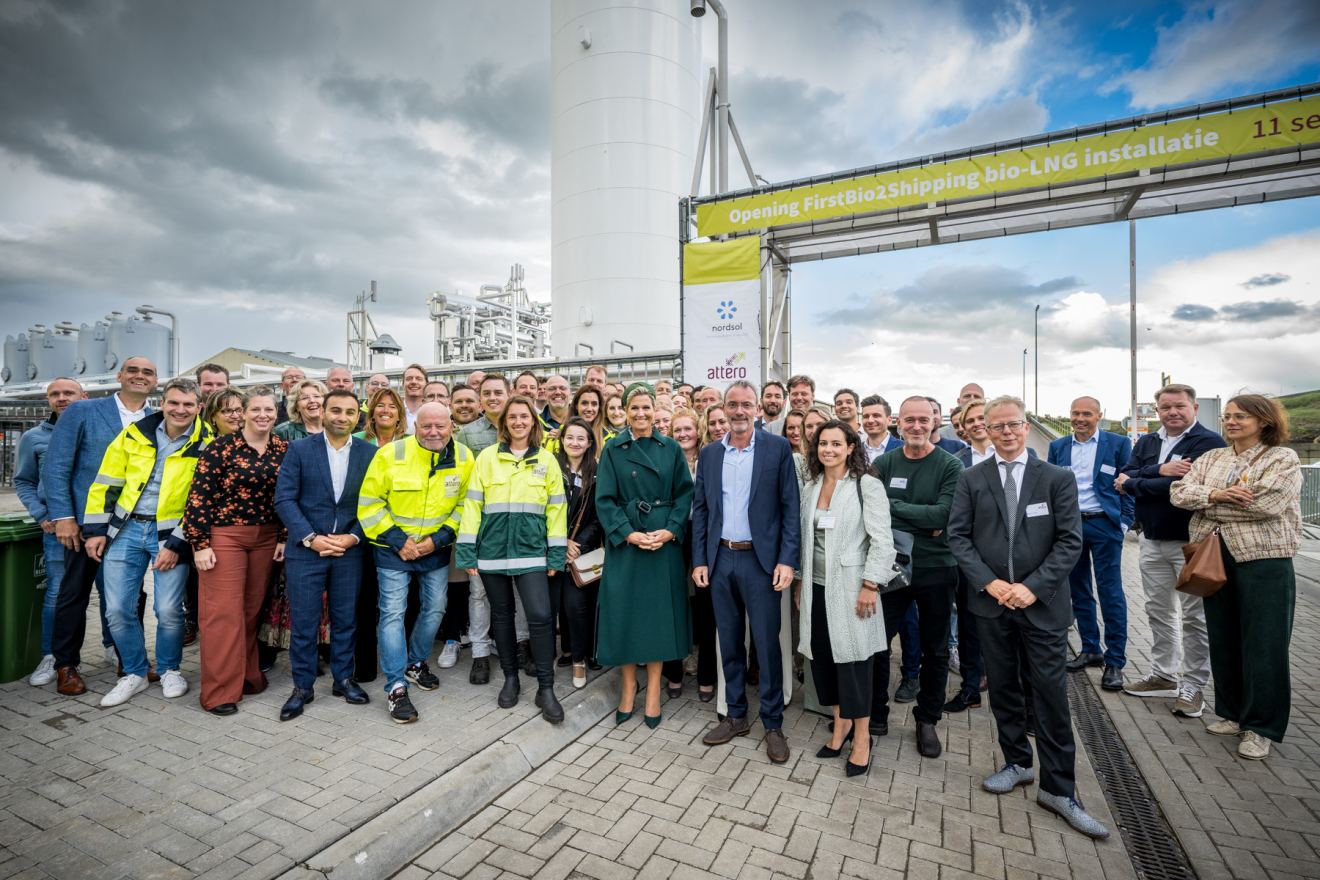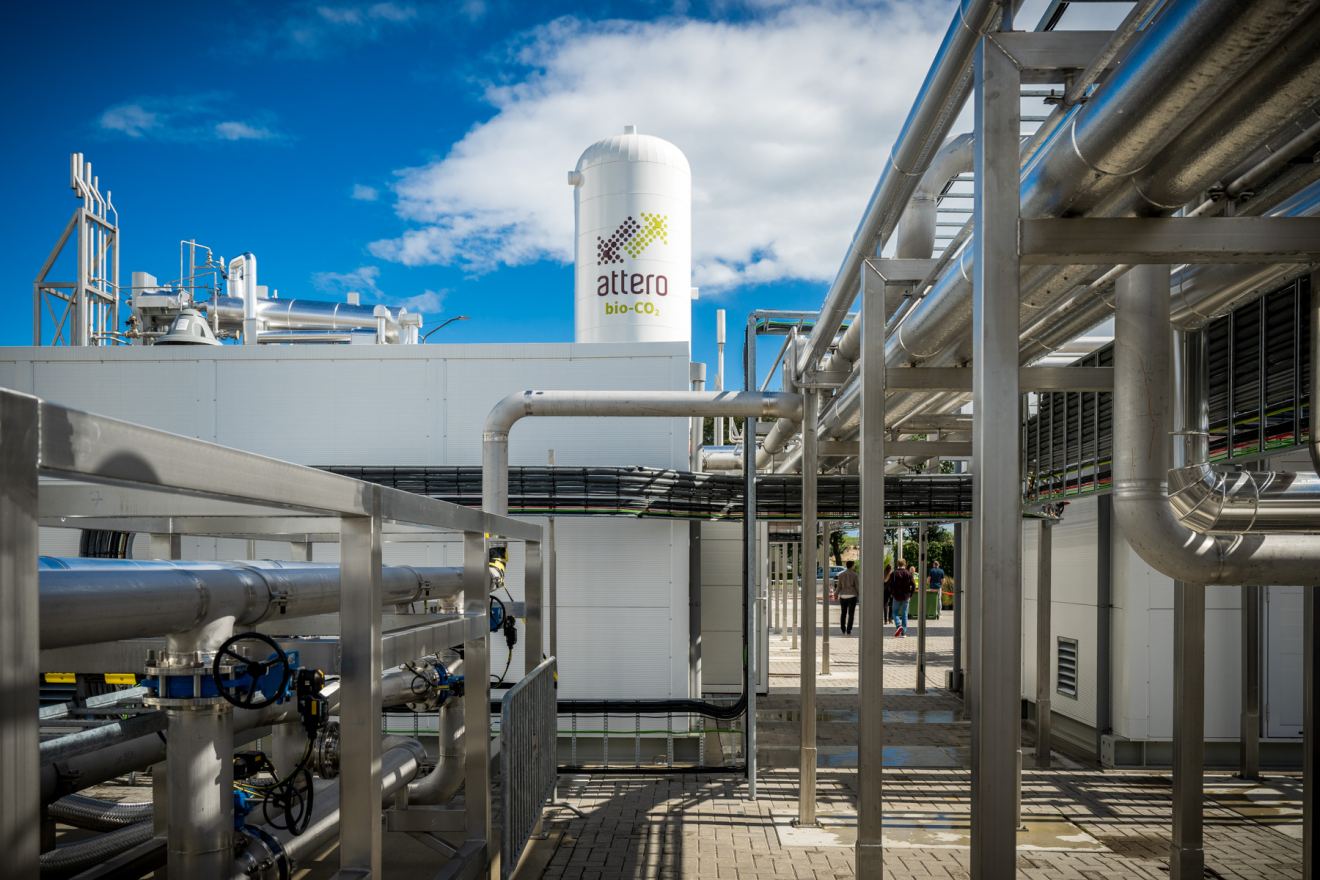It is time to make a change. Now!
Queen Máxima opens innovative bio-LNG plant in Wilp
On Thursday September,11th, 2024, Her Majesty Queen Máxima officially opened Attero and Nordsol's bio-LNG plant in Wilp. The plant produces sustainable bio-LNG from biogas from the fermentation of vegetable, fruit and garden waste (VGF). This brings the sustainability of maritime and heavy road transport one important step closer.
About the installation
The plant will annually convert 6 million Nm3 of biogas from household GFT waste into 2,400 tonnes of high-purity bio-LNG and 5,000 tonnes of liquid bio CO2. Assuming average consumption, trucks can travel more than 10 million kilometres with this amount of bio-LNG. The transformation from waste to energy also reduces greenhouse gas emissions. Over the next 10 years, Attero and Nordsol expect a reduction in CO2 emissions of 87,500 tonnes, comparable to the CO2 uptake of more than 4 million trees.
‘We are honoured that Queen Máxima opened our plant,’ says John van Haeff, Business Unit Manager Organic at Attero. ‘This plant proves that waste is a source of clean energy and new raw materials. Together with Nordsol, we are making a direct contribution to CO2 reduction and promoting the circular economy.’
'This Dutch innovation makes local production of bio-LNG from organic waste streams very attractive,’ said Robert Goevaers, director of Platform Groen Gas. ‘This is not only going to accelerate the sustainability of heavy transport, but it also contributes to a truly circular and fossil-free economy.’
Sustainable Bio-LNG as a solution for the transport sector
Bio-LNG from fossil-free sources can play a key role in sectors where full electrification is challenging. Particularly for heavy long-distance freight transport, shipping and aviation, full electrification is not yet an option and thus the use of renewable fuels is crucial. Thanks to its direct applicability in existing infrastructure, bio-LNG offers a scalable and cost-effective solution.
‘With our technology, we make real bio-LNG, i.e. not from fossil sources, but from organic waste,’ says Léon van Bossum, CEO of Nordsol. ‘We can already apply this technology to many of Europe's 20,000 biogas plants and thus reduce dependence on imported fossil fuels.’
In 2021, the European Union awarded the project a €4.3 million grant. The EU sees an important role for bio-LNG in making long-distance heavy transport more sustainable. In 2022, the European Parliament adopted the FuelEU Maritime Regulation. It aims to gradually reduce the greenhouse gas intensity of fuels in the sector, starting with a 2% reduction by 2025 and increasing to an 80% reduction by 2050. Attero and Nordsol's bio-LNG plant supports European goals for climate and energy transition
‘The European Commission sees great potential in Attero and Nordsol's bio-LNG plant,’ said Daniel Mes, member of Eurocommissioner Wopke Hoekstra's Cabinet. ‘We are following the developments with interest and enthusiasm.’
